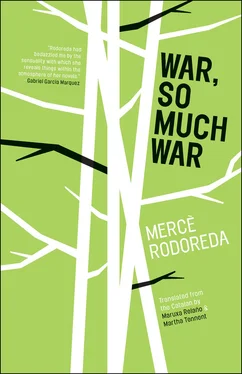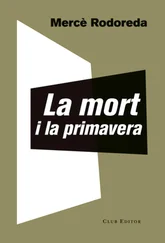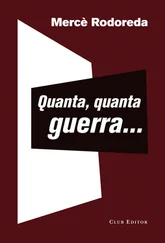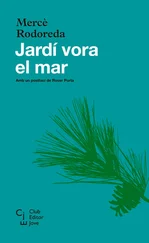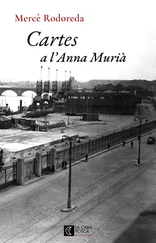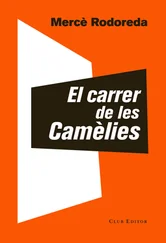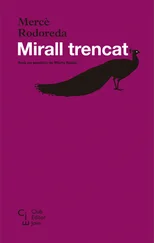
It had turned dark. From the farmhouse came the smell of rich soup. I crept closer, lured by the smell, until I was standing in the middle of the portal in a stupor, begrudging them the food. The farm woman noticed me right away. She opened her mouth, but no shout emerged from it. The farmer turned his head: His face was the color of the earth, and he had a dark beard and hair cut so short it resembled a brush. Staring at me like a pair of owls, two twin girls with spoonfuls of soup halfway to their mouths were fighting back laughter, as if amused that I was so filthy and that my always-empty stomach was flatter than a carpet beater. With a thunderous voice, the farmer ordered me to come in; he had me tell him where I was from and what my name was. I explained I was lost, I had been separated from the other soldiers by clouds of smoke after a series of explosions. He told his wife to serve me a bowl of soup. The dish was deep, glazed, its rim decorated with painted flowers, which I kept my eyes on as I ate, seated on the stone hearth because the farmer had not asked me to sit at the table. I could have eaten seven whole pots of that rich, warm soup. They gave me two slices of bread larger than my feet, and I kept dipping them in the soup. I saw that the farmer had a wooden leg, which I hadn’t noticed when he was whipping the dog. He asked me what I planned to do. Rejoin the soldiers, I said. There’s time for that. Around here we have more work than we can manage. So, not feeling inclined to start roaming again from place to place, I stayed. They had me wash the dishes and showed me where I would be sleeping: a tiny alcove with a cot and a stool, just beside the hearth. You entered through a small door that didn’t shut well and had a crack in the middle, so if you put your eye to it from the outside, you could see the cot. I pushed the cot against the wall that had the hearth on the other side. The family slept upstairs. I was still working in the kitchen when they went up and left me alone. After I washed the soup pot, I hid the bones in it and then dumped them in a bucket under a pile of potato skins and cabbage leaves.

The night was sweet, blue-black, yet lighter around the edges of the moon. Bucket in hand, I went in search of the dog. I had trouble finding him. He was lying against a low drywall on the edge of a field, his breathing belabored. Without touching him I set the bones down near him, and I saw his eyes gleaming.

After a fortnight at the farmhouse, I had recovered to such an extent that when I studied my image in the goose pond I scarcely recognized myself. I ate mountains of potatoes, heaps of rice, bowls and bowls of pork and vegetable stew. One day the farm woman — her name was Fermina, pale skinned, with moist, sleepy eyes like the dog that was beaten — told me that her two sons, Miquel and Llorenç, had died in the war, after all the effort it had taken to bring them up. Why did they have to die? And who did they die for? She had watched the boys go. She could still see them: two shadows silhouetted against the glory of the sun. Every evening since that day she would stand in the doorway, gazing at the mountains, waiting and waiting, sick with yearning. With tears in her eyes she confessed that I and her youngest son, Miquel — who was an angel — were like two drops of water from the same fountain, so much did we resemble each another.
I had to work hard. I couldn’t handle it all: pulling up potatoes, tilling the vegetable garden and watering it. . You’re doing a good job. I told them about our field of carnations. I had to carry the baskets of laundry to the clotheslines, clean the stable, henhouses, pigeon coop, and rabbit cages, and provide fodder to the old horse with a sore on its left hip that was always covered with flies. I had to wash the dishes, kill hens and chickens, chop wood and pile it up all neat for when the great cold arrived. The only chore the farm woman did not task me with was collecting eggs, because, as she made plain to me, she was afraid I would drink them raw the way Miquelet did; he would suck as many as he could in one sitting, and if the family wanted to have an omelet they had to go buy eggs at the next farmhouse, and each omelet cost them forty eggs. The farmer spent most of his time in the village, glued to a bench in the tavern playing cards. . Little by little the dog began coming closer to the farmhouse; if he caught sight of the farmer, who never even looked at him, the dog bared his teeth and the hair on his back stood up. I always left food for him by the same wall as that first time, and he always waited for me there. After he had eaten, he would sit next to me and the two of us would look at the moon. He was always right there behind me, never leaving my side. He was my greatest companion; we loved each other.
I felt spied on by the twins. The firstborn was named Teresina. The second-born was called Camineta — little walker — because, apparently, as soon as she was born she wiggled her legs as if wanting to walk. Teresina told me that her father had beaten the dog because it had stolen a piece of ham and nothing infuriated him more than thieves. But in reality, they were the ones who had taken the ham. When their father noticed that the ham was missing, the girls blamed the dog and escaped a good thrashing. They burst out laughing as if they had gone mad.

A dull rapping on the wall by the hearth woke me. I pulled on my trousers and opened the door. It was the twins, who started laughing as they always did when they saw me. Camineta, wearing tiny gold earrings, whispered to me to go with them; they needed my help. She was carrying a small lantern. We went up to the second floor, holding onto the banister as we tiptoed up the steps. They led me to a large room that had the sweet scent of lavender. We climbed a ladder that was propped against a hole in the ceiling and entered the attic. The smell there could not be easily described. From the ceiling hung strings of garlics and bunches of onions. I stumbled on a heap of potatoes while trying to avoid some sacks of wheat, the contents of which were waiting to be transferred into large boxes scattered around the room. A rabbit pelt, dry and badly hung, brushed against my cheek. Everything was burning hot. The twins stopped in front of a huge armoire that reached all the way to the ceiling. Slide it away from the wall. Holding up the lantern, Camineta pointed to the bulky object. Move it back without making any noise. I tried to move it, tried with all my strength, but it wouldn’t budge. I kicked it. No noise, I said! Teresa glared at me, her eyes filled with fire. I braced my back against one side of the wardrobe, my feet solid on the ground, and pushed with all my might. It was useless. With Camineta behind me shining her light for me, I searched every corner for a tool I could use as a lever. A long board did the trick: I slid it behind the wardrobe and succeeded in moving it forward a bit. If we shift it a couple of spans, Teresina said, we’ll be able to get into the larder: The door behind the wardrobe opens inward. Suddenly I had the impression that the armoire was slipping and was about to topple on me. If you make any noise, it’s all over. Father will wake up — he sleeps just below us — and none of us will live to see the dawn. Bam! One of the doors to the armoire had swung open. The inside was filled with sacks of rice. Let’s empty it out. We went about it like hired hands employed to remove the sacks and dump them on the floor. After that it was easy to move the armoire. The room Teresina called the larder occupied the entire top floor of the farmhouse, and it was chock-full of food. From the beams hung hams, dried sausages, blood sausages, white sausages, and sobrassada sausages. Camineta showed me around. Bet you didn’t expect this. Large vats of olive oil. Huge jars filled with lard, balls of fat clustered together, as large as the heads of babies. Crocks of confit: goose, turkey, rabbit, chicken. Teresina, perched on the top of a ladder with a pair of scissors she produced from who knows where, started cutting at the rope that was holding a ham. Right away she started carving it up and dishing it out: it was dry, it was salty, it was good. Although we never went hungry, we devoured it as if we were starving. In a corner, apples, persimmons, and figs were scattered about on top of sacks. . We left taking with us the remainder of the ham and pushed the armoire back in place, leaving everything as we had found it.
Читать дальше
